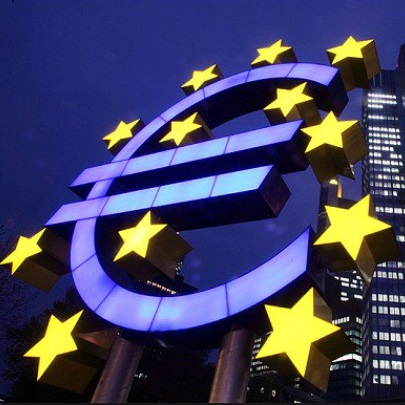 The European Central Bank will end its asset purchase programme by the end of the year and then wait six months before raising interest rates, according to economists polled by Reuters, who again upgraded their growth outlook for this year.
The European Central Bank will end its asset purchase programme by the end of the year and then wait six months before raising interest rates, according to economists polled by Reuters, who again upgraded their growth outlook for this year.
While the euro zone economy is booming now, it is expected to lose some of that momentum. And inflation is not due to reach the central bank’s target of just under 2 percent until at least 2020, according to the poll of around 80 economists.
The ECB is due to stop buying 30 billion euros’ worth of bonds each month after September. A debate is now raging over whether to end it sooner, even though inflation remains well below target and growth momentum is forecast to slow.
But not a single economist polled by Reuters from Feb 11 to 15 thought the ECB would halt its asset-buying before September, and just under half of them, 25 of 57, said it would stop them by then. All but one of the remaining respondents said the asset purchase programme (APP) would end in December.
“The ECB is likely to add a tapering on top of the current announced programme. That means that it will continue its APP beyond September 2018,” wrote Louis Harreau, euro zone economist at Credit Agricole CIB. “A three-months tapering seems to be enough for the doves and short enough for most of the hawks.”
Whether to tighten policy when inflation remains weak is a dilemma faced by other major central banks, including the Federal Reserve, which is expected to raise rates three times this year, despite U.S. policymakers also worried about relatively weak wage growth and inflation pressure.
But the ECB is still at the stage of unwinding its extraordinarily aggressive stimulus left over from fighting the euro zone debt crisis and the ensuing deflationary threat.
That risk is now long gone but inflation is still very tame, forecast to average 1.5 percent this year, unchanged from the previous poll, with a median ranging between 1.4 and 1.6 percent in each quarter through to the end of June next year.
The highest inflation forecast in the entire series is 2.3 percent, in the third quarter of this year, while the low is 0.9 percent, well below the current rate and a percentage point below the central bank’s target.
CONVICTION FIRMING
ECB President Mario Draghi last month pledged to keep rates steady until well after the quantitative easing programme had concluded, saying asset purchases would continue until there was a sustained rebound in inflation.
About 85 percent of more than 40 respondents in the latest Reuters poll who answered a separate question said their conviction about when the ECB will end its asset purchases had either increased or stayed the same.
When asked how many months the ECB meant when it said “well past” the end of QE to raise rates, the consensus was six months, according to the poll of over 50 economists, with forecasts in the range of three to 18 months.
The ECB is forecast to raise the deposit rate by 15 basis points to -0.25 percent by the end of the second quarter next year and to zero by the end of 2019, according to the poll.
It is expected to raise the refinancing rate for the first time since 2011 in the second half of next year, taking it to 0.25 percent by the end of 2019 from zero percent now.
The euro zone’s exceptional economic performance is underpinning the optimism. It is easily outstripping growth in Britain, which is grappling with the terms on which it will leave the European Union next year after its 2016 Brexit vote.
The 2018 growth outlook was once again revised up in the latest poll. That latest consensus is the best since polling began for the period in March 2016.
Full year growth was expected to average 2.3 percent this year and 1.9 percent next, compared to 2.2 percent and 1.8 percent respectively in the previous poll.
But economists say that optimism could fade if the euro keeps rising, a concern voiced by ECB policymakers. They don’t want a stronger currency as it depresses import prices, getting in the way of meeting its inflation target.
The single currency, which had its best run since 2003 last year, gaining over 14 percent against the dollar, is up more than 4 percent this year after recording its best monthly performance in January since its inception.
A separate Reuters poll of foreign exchange strategists showed any further spike in the euro could discomfort the ECB, with the $1.30 level likely to cause real concern.
“While it is too soon to detect an impact (of the euro rise) on growth or inflation, one shouldn’t completely downplay the potential harm of a sudden currency appreciation, even when the strengthening is based on an improving economy,” said Peter Vanden Houte, chief euro zone economist at ING.
Source: Reuters (Polling and analysis by Manjul Paul and Indradip Ghosh; Editing by Ross Finley and Hugh Lawson)
Related Topics
Euro-Area Economy Is on Track for Best Quarter Since 2015 – Euro Area Economy
